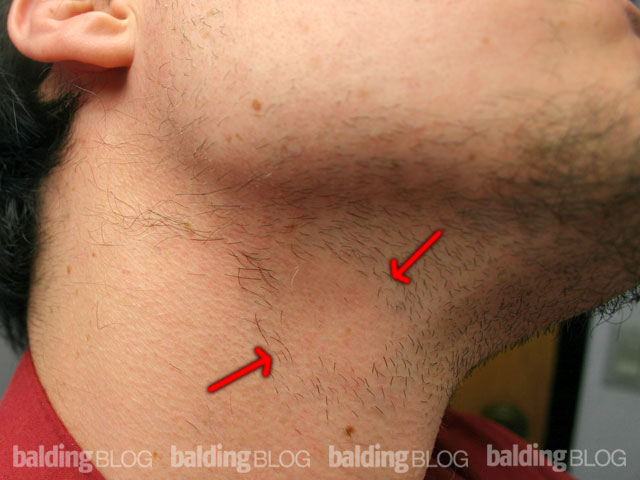I am a male in my early 20’s and I just came across your website. I have been on propecia for maybe 3 years and I have a feeling it is loosing it’s power. More so in the front of my scalp. What is another option? I received a book from a dermatologist and in it he lists some other medications. I don’t have the list handy but I would like to send you the list so you can let me know what you think.
I want to know about telogen effluvium. How do you know if you have it or if you are going bald? I read on the net that for telogen effluvium there is an overall thinning of the scalp but not baldness and that the hair comes back. But how long before the hair comes back? I am guessing if the hair doesn’t come back within a year then you are going bald I guess.
congrats on the site once again. Really helpfull.

It would be hard to judge about the efficacy of Propecia. You don’t know how you would look if you were not taking it. It is true that some patients experience better results than others, but your hair loss may get even worse if you stop taking it now (by catching up to the point of loss you would have experienced if you’d never taken it at all).
As discussed here before, the effect of Propecia on the frontal area is not completely studied. Current studies on Propecia indicate good result on crown and back of scalp. Other options are minoxidil and hair transplantation. Propecia and minoxidil are the only FDA approved medications that should be used for treatment of hair loss.
Human hair is in growth or anagen phase most of the time (between 3-6 years), and following that enters to a resting or telogen phase (about 3-6 months). The hair loss that we experience on a daily basis is due to shedding of hairs that are going into telogen phase (10% of our hair population at any one time). Telogen effluvium is triggered when a physiologic stress or hormonal changes cause a large number of hairs to enter to telogen phase at one time. Telogen effluvium is characterized by diffuse hair shedding. It is usually caused by a metabolic or hormonal imbalance or medications. Typically, recovery occurs within 6 months without any treatment. If your hair didn’t come back after 6 months, you should see a dermatologist for further evaluation and to rule out the other causes of hair loss.
At your age, with frontal balding, I would expect that you have genetic hair loss. The diagnosis is made by mapping out your scalp hair for miniaturization. This will show regional miniaturization weighted to the frontal area as you are describing. If the diagnosis is telogen effluvium, it will not show that pattern and it will be more generalized beyond the frontal area into the permanent zone.
![]()
![]()



